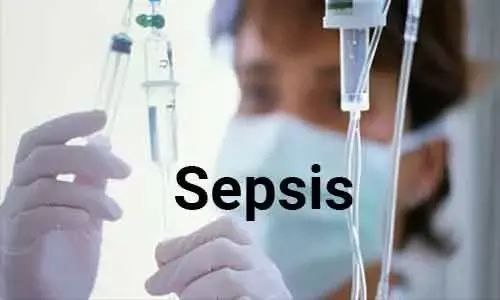- Home
- Medical news & Guidelines
- Anesthesiology
- Cardiology and CTVS
- Critical Care
- Dentistry
- Dermatology
- Diabetes and Endocrinology
- ENT
- Gastroenterology
- Medicine
- Nephrology
- Neurology
- Obstretics-Gynaecology
- Oncology
- Ophthalmology
- Orthopaedics
- Pediatrics-Neonatology
- Psychiatry
- Pulmonology
- Radiology
- Surgery
- Urology
- Laboratory Medicine
- Diet
- Nursing
- Paramedical
- Physiotherapy
- Health news
- Fact Check
- Bone Health Fact Check
- Brain Health Fact Check
- Cancer Related Fact Check
- Child Care Fact Check
- Dental and oral health fact check
- Diabetes and metabolic health fact check
- Diet and Nutrition Fact Check
- Eye and ENT Care Fact Check
- Fitness fact check
- Gut health fact check
- Heart health fact check
- Kidney health fact check
- Medical education fact check
- Men's health fact check
- Respiratory fact check
- Skin and hair care fact check
- Vaccine and Immunization fact check
- Women's health fact check
- AYUSH
- State News
- Andaman and Nicobar Islands
- Andhra Pradesh
- Arunachal Pradesh
- Assam
- Bihar
- Chandigarh
- Chattisgarh
- Dadra and Nagar Haveli
- Daman and Diu
- Delhi
- Goa
- Gujarat
- Haryana
- Himachal Pradesh
- Jammu & Kashmir
- Jharkhand
- Karnataka
- Kerala
- Ladakh
- Lakshadweep
- Madhya Pradesh
- Maharashtra
- Manipur
- Meghalaya
- Mizoram
- Nagaland
- Odisha
- Puducherry
- Punjab
- Rajasthan
- Sikkim
- Tamil Nadu
- Telangana
- Tripura
- Uttar Pradesh
- Uttrakhand
- West Bengal
- Medical Education
- Industry
Vitamin C reduces short-term mortality in sepsis patients, study finds

China: Mono-intravenous vitamin C therapy may reduce short-term mortality in sepsis patients and also protects organ function, a recent study has found. The study appears in the American Journal of Emergency Medicine.
Sepsis, the body's extreme response to an infection, is a common life-threatening emergency with substantial morbidity and mortality. The role of vitamin C in sepsis is still controversial. Considering this, TingLi, School of Medicine, University of Electronic Science and Technology of China, China, and colleagues aimed to systematically review the efficacy of intravenous vitamin C supplementation in the treatment of sepsis.
For this purpose, the researchers comprehensively searched the online databases to collect randomized controlled trials (RCTs) of vitamin C supplementation for patients with sepsis or sepsis shock from January 2000 to March 2021. Two researchers independently screened the literature, extracted the data, and accessed the risk of bias in the included studies; meta-analysis was then performed by using Revman 5.4 software.
A total of 10 RCTs involving 1400 participants were included.
Key findings of the study include:
- Intravenous vitamin C supplementation can improve SOFA (ΔSOFA) within 72 h [RR = 1.32] of septic patients.
- There were no difference on short term mortality (28–30d)[RR = 0.83], long term mortality (90d) [RR = 1.16], hospital LOS[RR = 0.15], ventilator-free days[RR = 0.09], ICU-LOS[RR = 0.22], between two groups.
- The results of Subgroup analysis showed that intravenous vitamin C alone can reduce the risk of short term mortality (28–30d) [RR = 0.61]of sepsis patients.
"Our findings showed that mono-intravenous vitamin C therapy may reduce short-term mortality of sepsis patients, and it may protect organ functions," wrote the authors.
Due to the limitation of the quantity and quality of included studies, the above conclusions need to be verified by more large scale and high quality randomized control trials, they concluded.
Reference:
The study titled, "Efficacy of intravenous vitamin C intervention for septic patients: A systematic review and meta-analysis based on randomized controlled trials," is published in the American Journal of Emergency Medicine.
DOI: https://www.sciencedirect.com/science/article/abs/pii/S0735675721006513
Dr Kamal Kant Kohli-MBBS, DTCD- a chest specialist with more than 30 years of practice and a flair for writing clinical articles, Dr Kamal Kant Kohli joined Medical Dialogues as a Chief Editor of Medical News. Besides writing articles, as an editor, he proofreads and verifies all the medical content published on Medical Dialogues including those coming from journals, studies,medical conferences,guidelines etc. Email: drkohli@medicaldialogues.in. Contact no. 011-43720751


